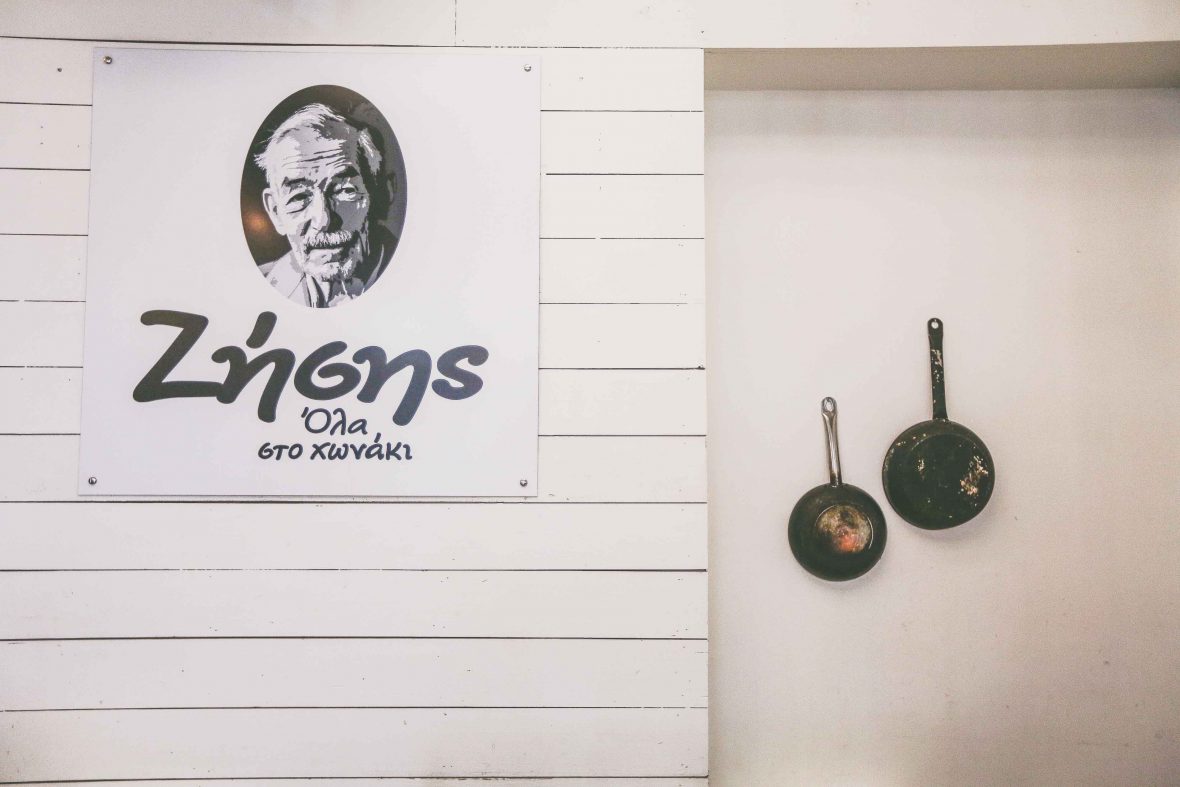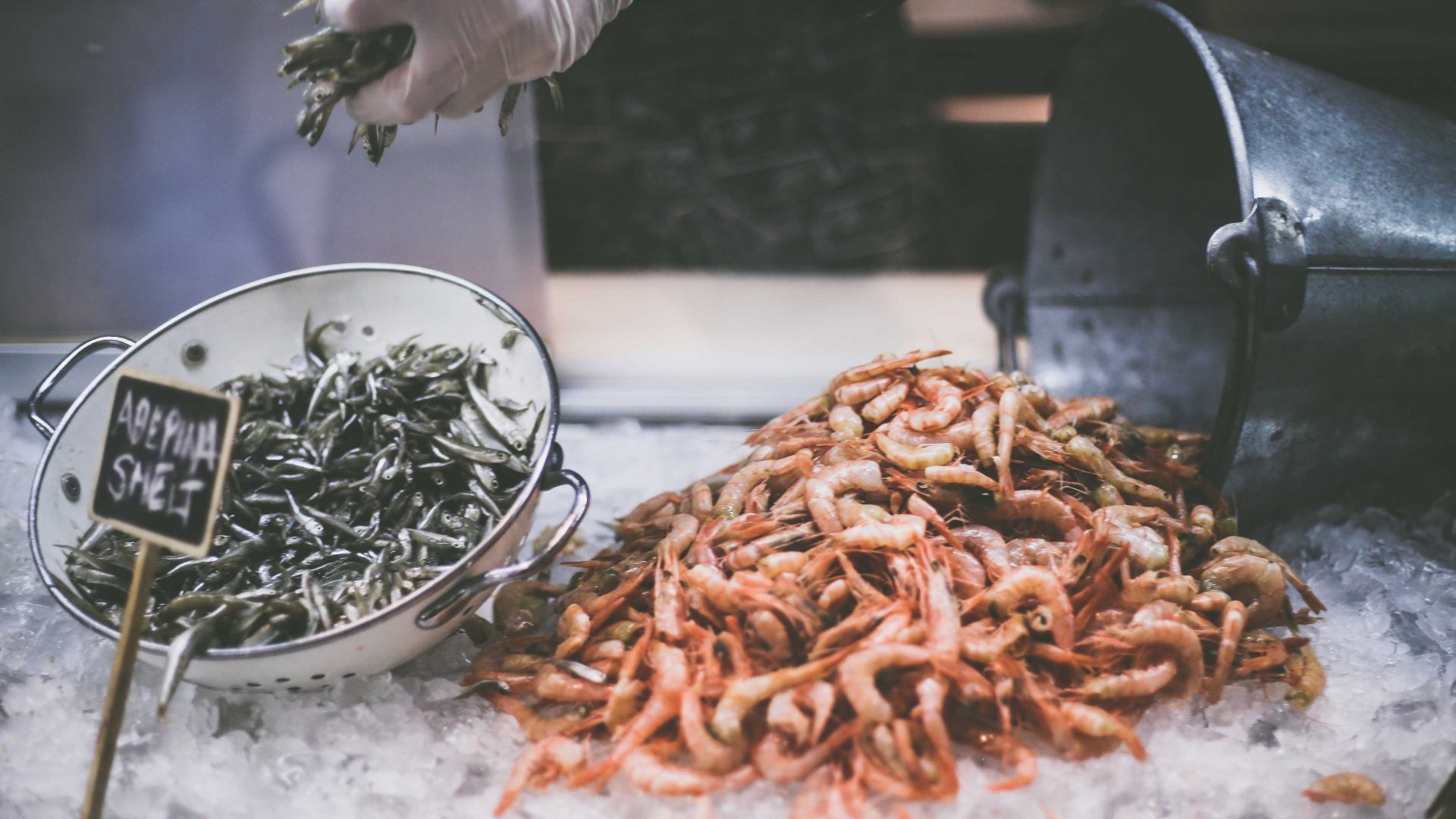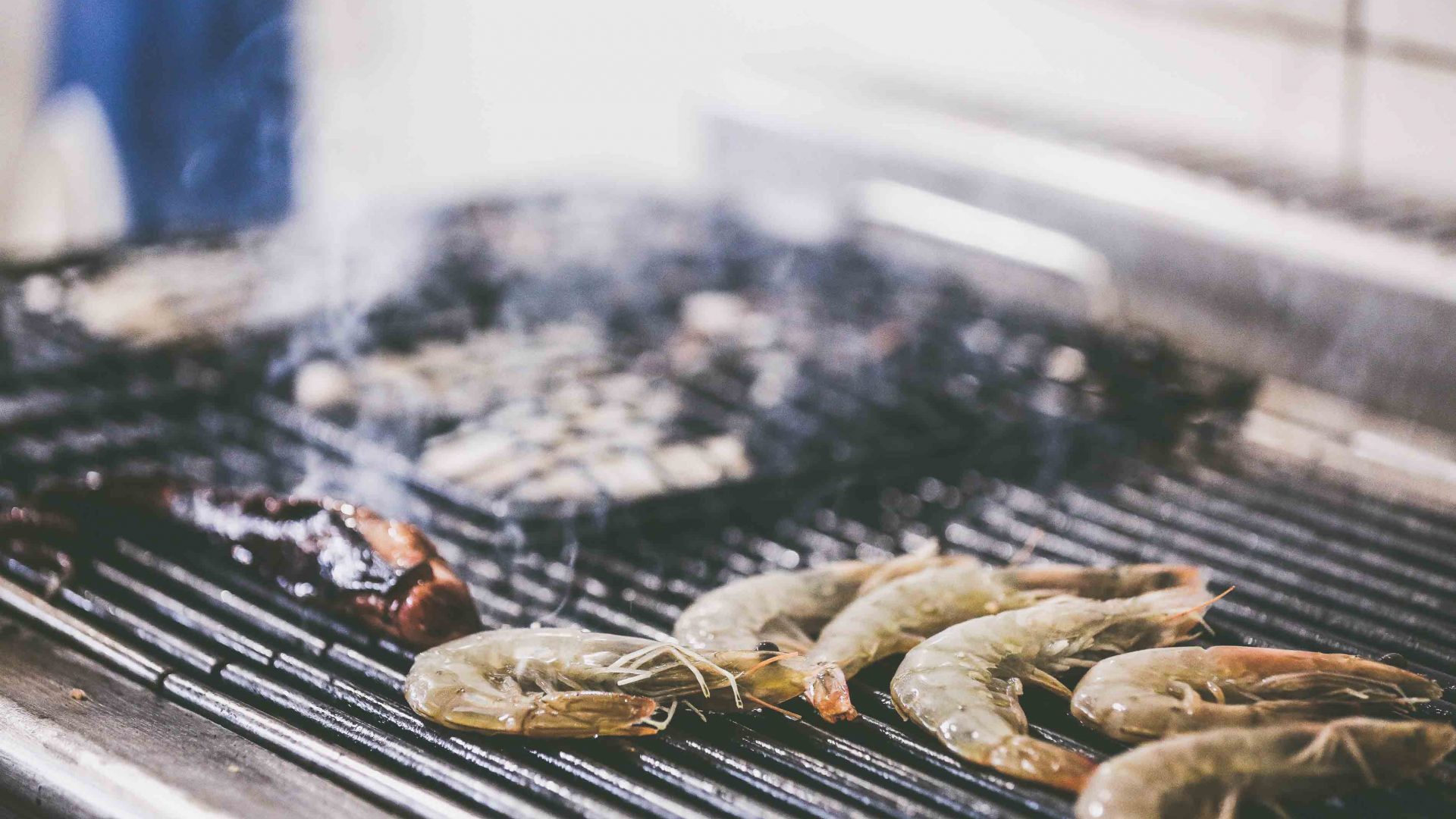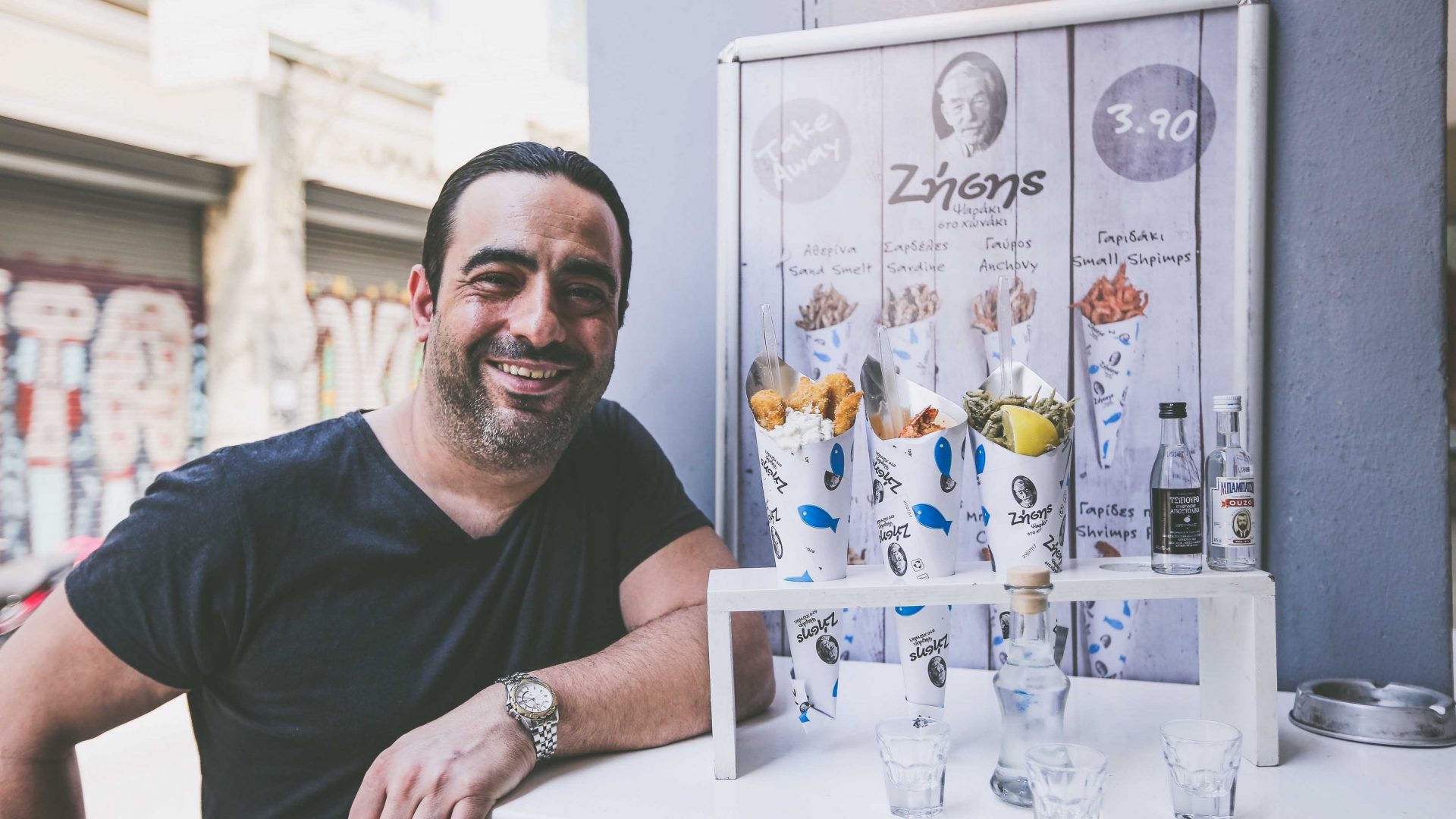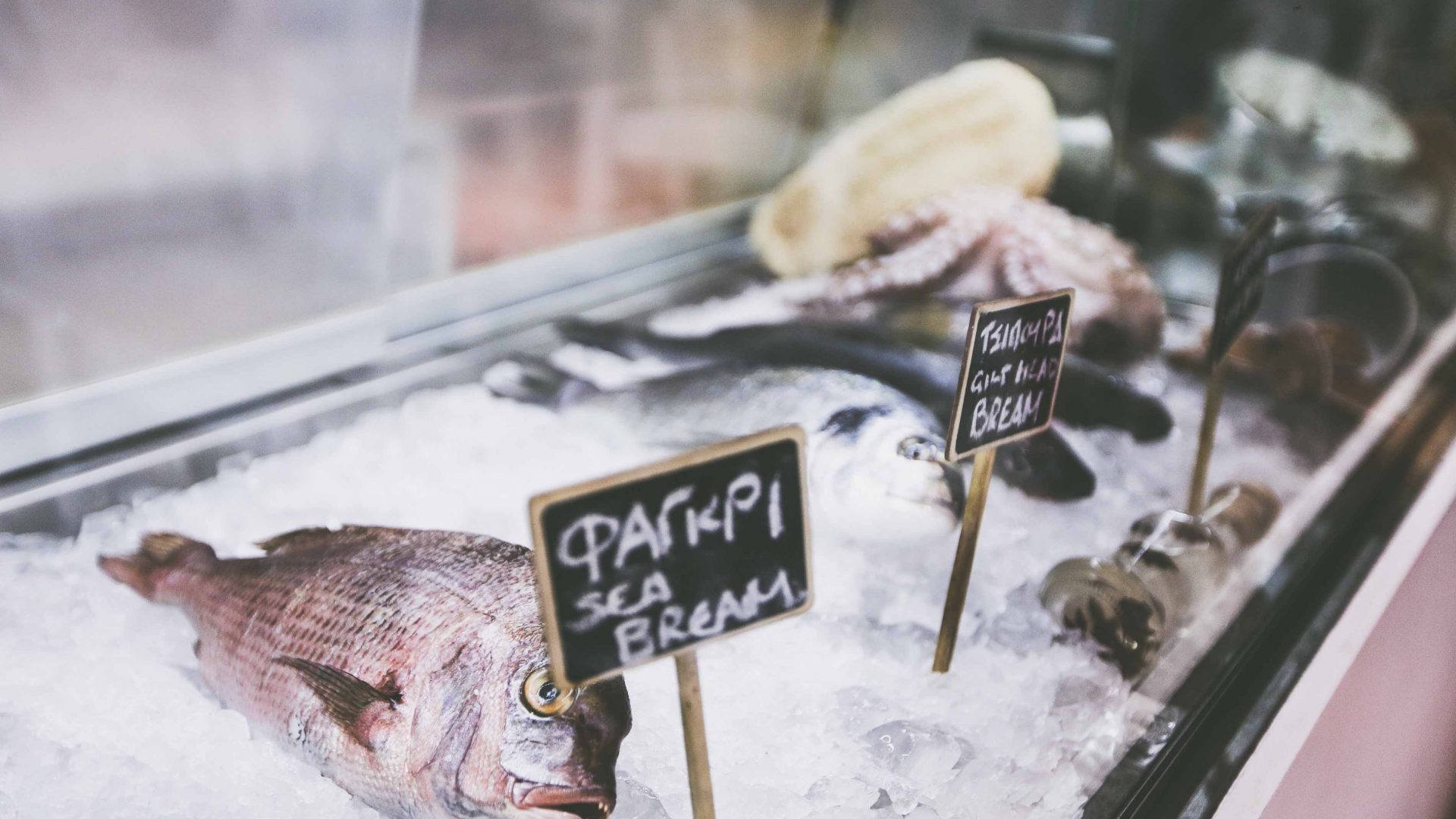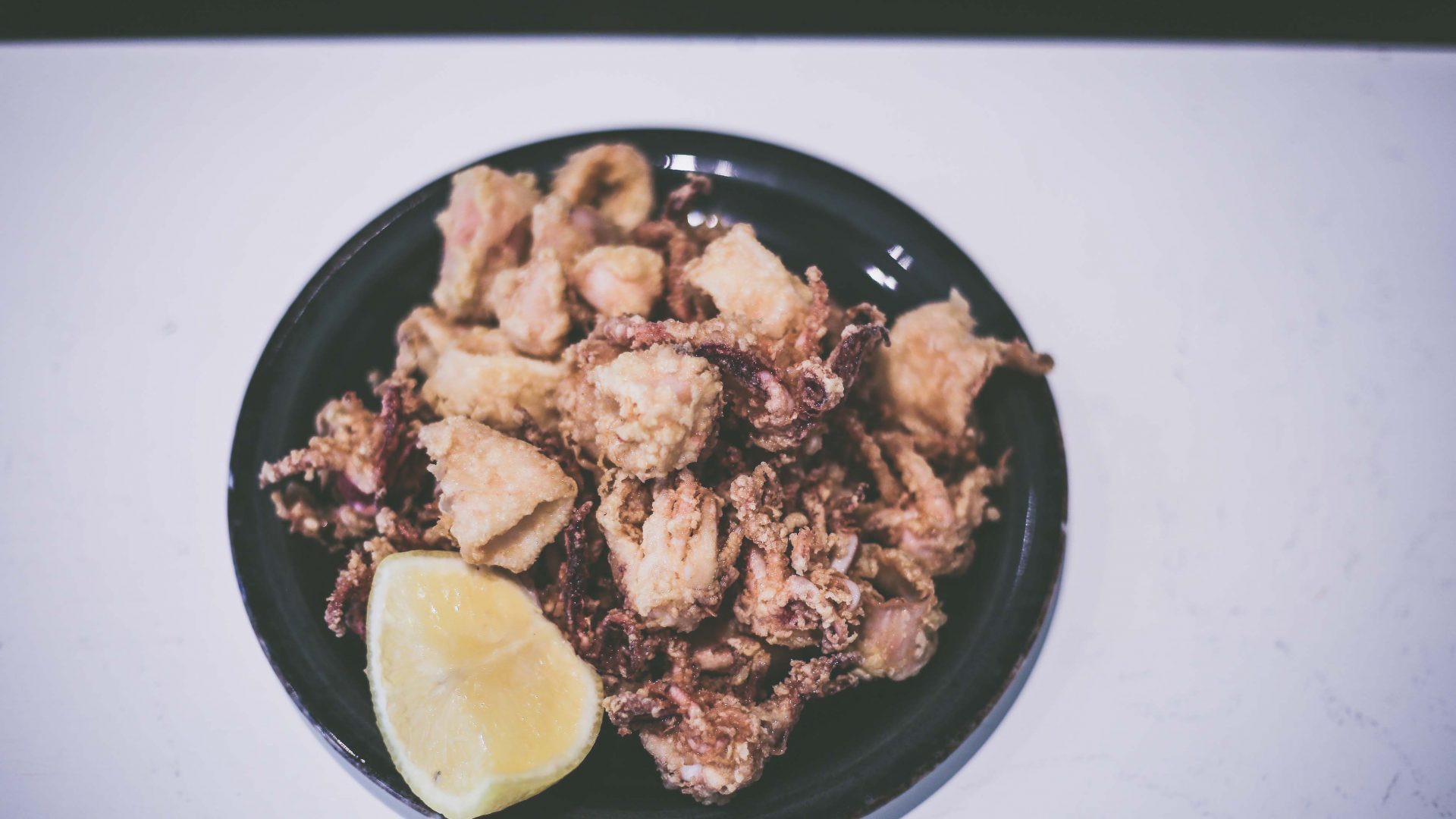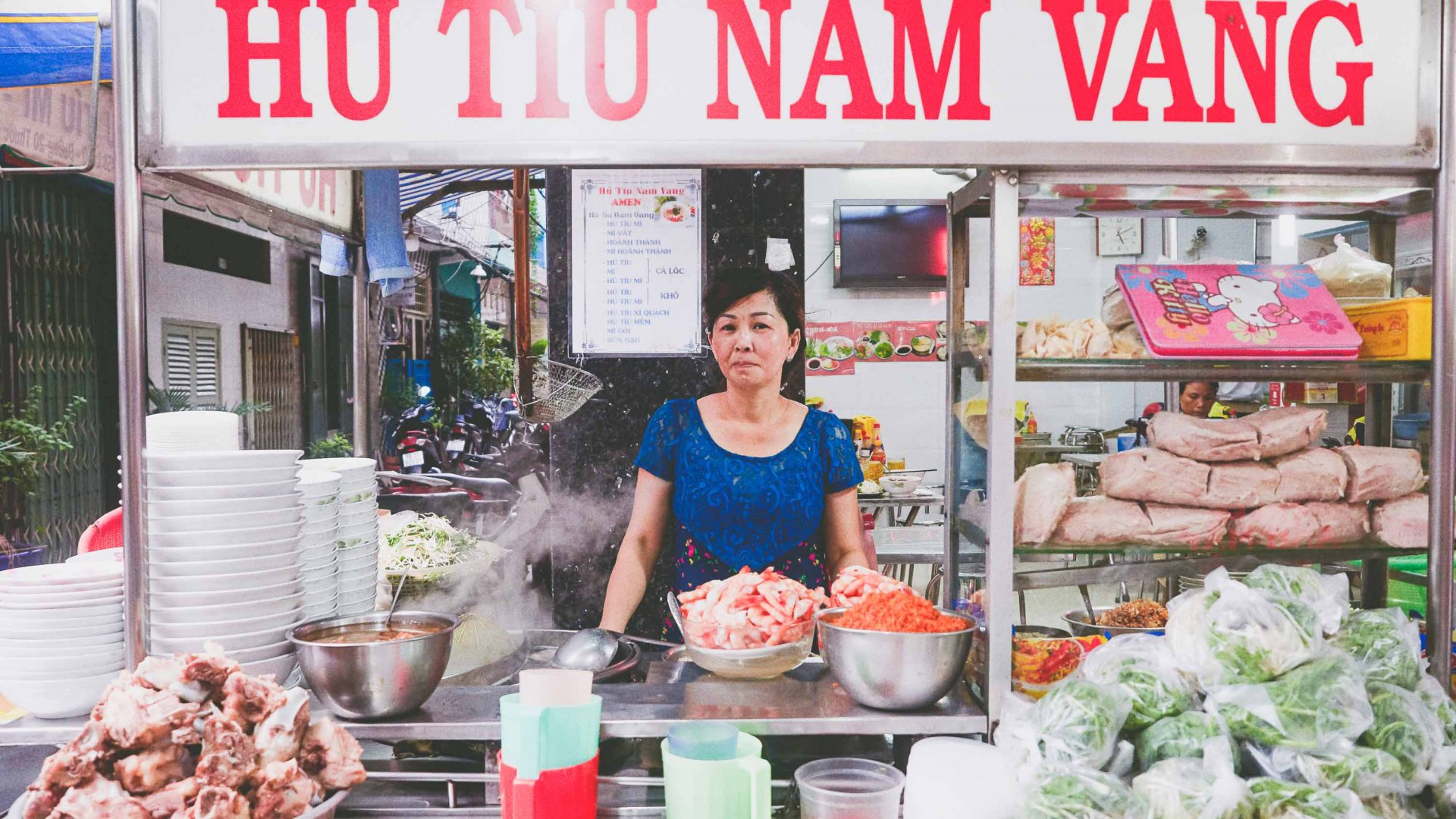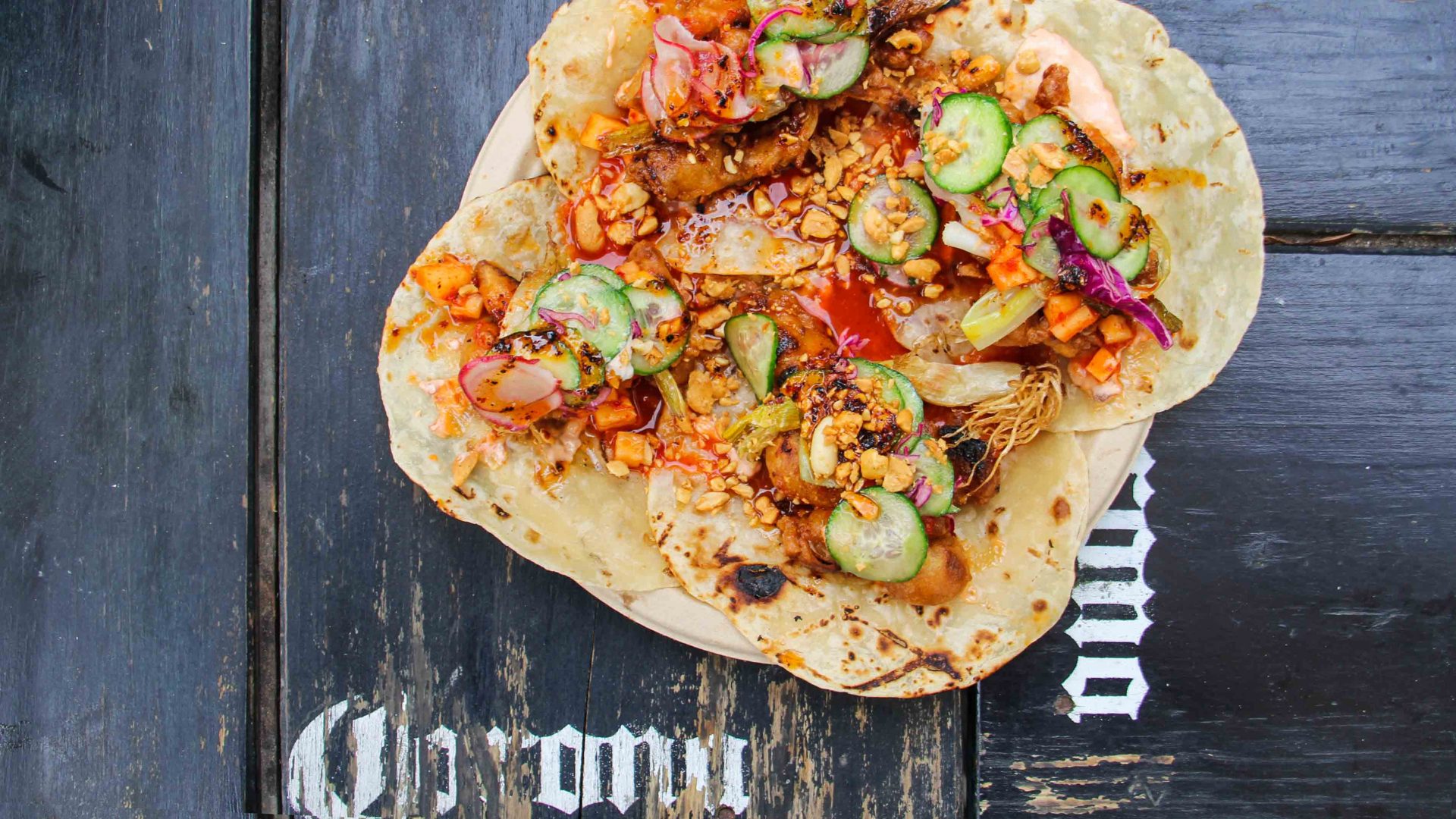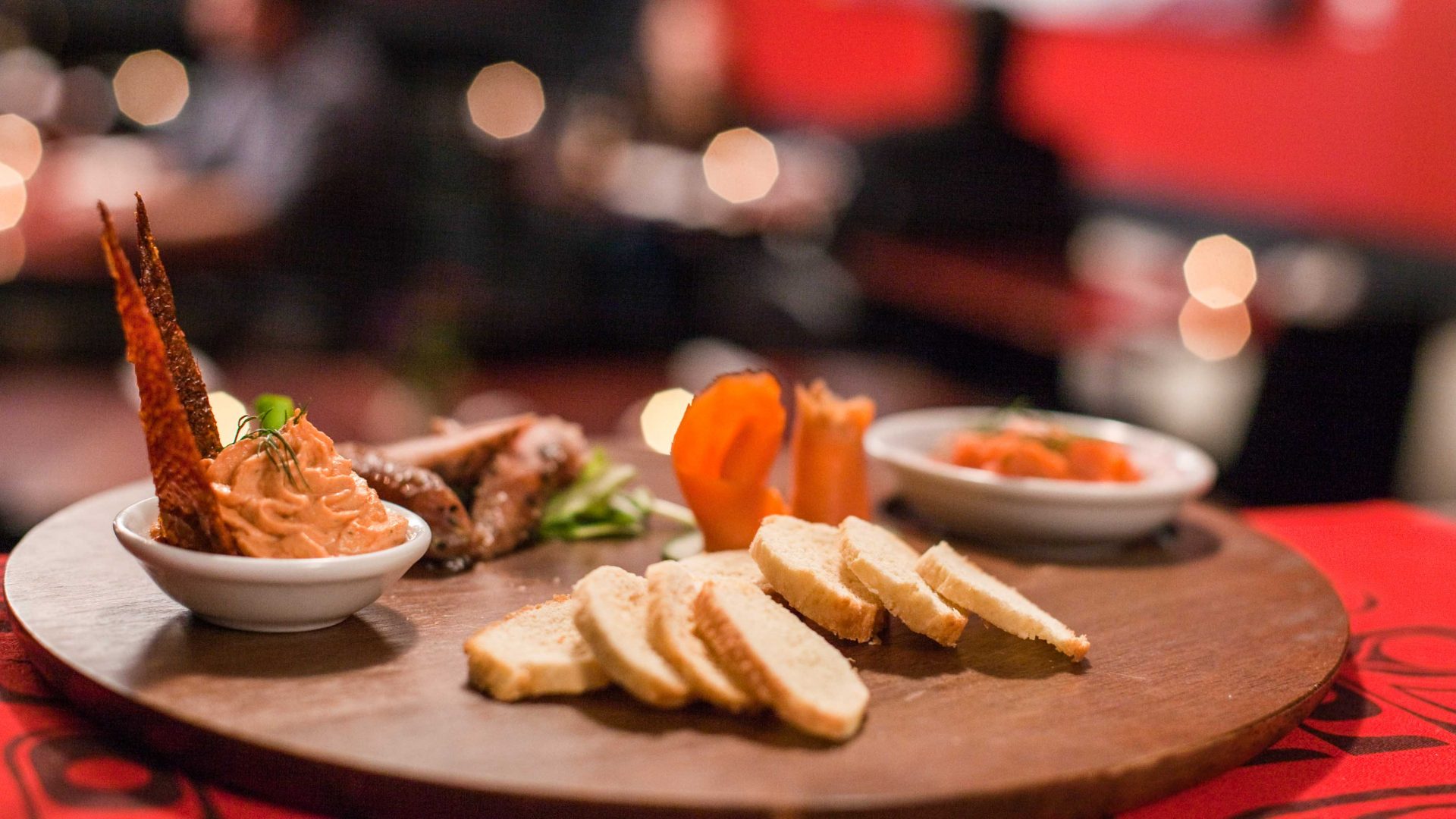
In the midst of Greece’s financial crisis, Zisis Papazisis’ ‘fish in a cone’ is helping keep busy Athenians well-fed on the run. Just like his grandparents did. The chef, a nominee in Urban Adventures’ first ever global street food awards, talks to Alex King.
The best stories often come from the hardest days. Growing up in Volos, a busy fishing port on Greece’s west coast, Zisis Papazisis was always fascinated by his grandfather’s tales of life in the cash-strapped 1950s, before his parents were born.
“Nowadays you have to pay for everything,” Zisis explains, wistfully. “In those days it was simple; you didn’t have to pay because there was no money. You were forced to share and exchange things. ‘I give to you, you give to me and we are equal.’”
As lunchtime approaches, the energy in the small, tightly-packed kitchen rises. The deep fat fryers bubble on full blast and the trickle of customers soon becomes a stream. Businesses on this street may have changed, but the frenetic pace hasn’t.
Customers make their selections from the menu and the fish goes straight into the fryer. The intense hissing grows louder every time another batch of wet, salty fish hits the hot oil. It’s like being in a frantic old factory, with workers scuttling around a hissing steam engine. “The food is healthier because we fry at a high temperature,” Zisis says. “The fish stays in the fryer for the shortest possible time so it absorbs as little oil as possible. That keeps the food lighter and it keeps things moving. Fast, friendly service is our way.”
We greedily work our way through the menu, and Athens’ Urban Adventures guide and food expert Nikoleta Zavou explains that she included Zisis on her Extreme Bites tour because it’s brought a fresh and innovative approach to street food in the city, one which has been passionately embraced by locals.
The small fish, such as sand smelt and anchovies, come out of the fryer almost straight away, while the bigger chunks, like the cod strips or fish balls, take a touch longer. Either way, as soon as the customer receives their order, they smother the fish with juice from the lemon perched at the mouth of the cone, and then they’re gone—back to the grind, or, if they’re lucky, to sit down and eat in the square outside the Agias Eirinis Orthodox church across the road.
“Street food is really common now, it’s the best choice if you’re working downtown,” says Nikoleta, adding that more and more locals are trying new things, such as going vegetarian, vegan or gluten-free. “People are trying to find different food ideas, and street food is able to react fastest, changing with the times.”
The most plausible origin for the ‘fish in a cone’ concept is tied to the history of the sailors and fishermen who were frequent visitors to Velissariou Street back in the day. They came to shore to enjoy the music, alcohol and good times and, when the time came to return to their ships, they’d take away their food wrapped in a cone. It was their way of keeping the party going at sea.
When it comes to making sure his food is as fresh and affordable as possible, Zisis exerts Herculean levels of effort, carefully buying from local producers at a price that will translate well for his customers. “I try and find the best stuff as cheaply as I can,” he says. “My price is low. I want to buy things cheap and sell them cheap. I don’t want my customers to pay too much.”
After a spell in the army, then studying art conservation, graphic design and tourism, before working everywhere from dive bars to Michelin-starred restaurants, Zisis opened his own spot—as an experiment initially—in 2017, and is finally doing things his way. The warm and bubbly 43-year-old is ecstatic about busting a gut each day, because people appreciate the effort and good value—and even more so in hard times.
Beneath each portion of Zisis’ fish, there’s a carrot and cabbage coleslaw to refresh, rehydrate and cleanse the palate. Washing it all down with a local spirit from Volos is highly recommended, but whether you’re left feeling the effects of tsipouro for the rest of the day really is up to you—and how much you choose to (over)indulge.
“Sharing food is a way we can communicate with each other,” Zisis says. “We need to remember that giving benefits the giver more than the receiver. If I cook you something you really like, and in return you give me a Euro or 50 cents less than it costs, I’m still winning if you are happy with the food that I give you.”
As the lunchtime rush subsides, Zisis begins to wind down. The food may not be free like it once was in his grandparents’ courtyard, but the love for hospitality and bringing people together through food continues. As we’re digging through our cones, we watch others picking up their takeaway fish and rushing away. They may not stick around long enough to show their appreciation, but everyone leaves Zisis satisfied.
—-




